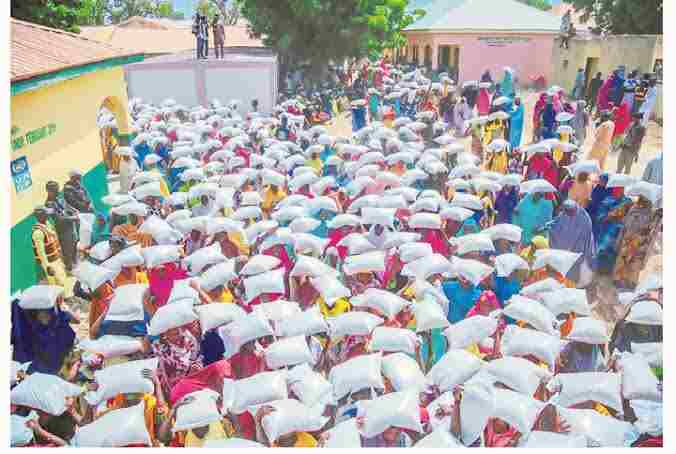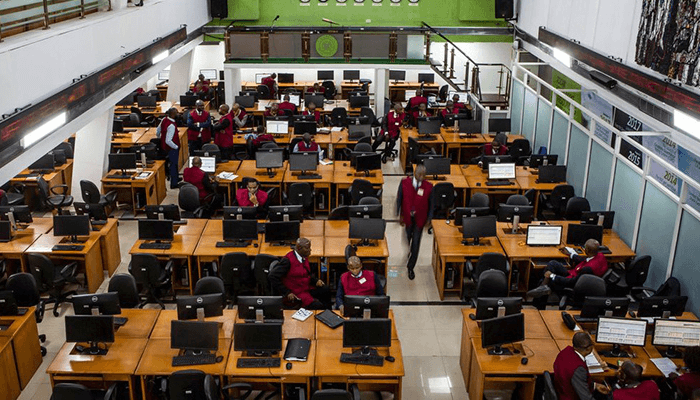In Nigeria, food crisis has escalated beyond what palliatives can resolve. While governments distribute food items in times of economic hardship, the effort often feels like pouring water into a basket—well-meaning but ultimately futile. Rising food inflation, exacerbated by the removal of subsidies on petrol and foreign exchange, has pushed millions of Nigerians further into hunger.
According to data from BudgIT’s platform, GovSpend, a civic-tech organisation advocating for transparency and accountability, the Federal Government has spent a total of N9.74bn on the procurement and distribution of food items as part of efforts to mitigate the impact of the food crisis across the country in 2024. This pallatives by the government has continued into 2025. But the question is, is it really solving the food crisis in Nigeria?
Join our WhatsApp ChannelFood insecurity by experts have persisted, not just because of a lack of palliatives but because of systemic failures in agricultural policy, infrastructure, and governance. “It’s heartbreaking,” said Ibrahim Ahmed, a Lagos-based shopkeeper. “They giving rice and beans, but how long does it last? Two weeks, then everyone is back to square one.”
Why Food Palliatives Are Not Enough
The government has long relied on food palliatives to ease hunger during crises. While these distributions offer temporary relief, they fail to address the root causes of food insecurity.
“Palliatives are like painkillers,” said Nkechi Akande, a public health expert. “They ease the symptoms temporarily but do nothing to treat the disease itself. The food crisis in Nigeria stems from a broken agricultural system, poor transportation networks, and security challenges that make farming a risky venture.”
For Lagos resident Segun Ogundipe, the inadequacy of palliatives is evident in their distribution. “The rice they gave isn’t always enough for many families according to what I heard. How are we supposed to survive? Meanwhile, prices in the market keep going up,” he lamented.

The government’s short-term measures do not address systemic issues such as inflation, food import dependency, and insecurity in farming regions. Without tackling these challenges, food palliatives are merely a bandage on a deep wound.
The Impact of Food Inflation
One of the primary drivers of the food crisis is inflation. According to Nigeria’s National Bureau of Statistics, food inflation hit 39.93% in recent months, forcing families to cut back on even the most basic food items.
Daniel Ogar, a Lagos taxi driver, explained the reality for many Nigerians. “I used to buy garri and beans for my family of four, but now I can only afford one. The government talks about helping us, but what about reducing the cost of food? Even if they will not subsidise any other thing, food is suppose to be subsidise. An average Nigerian should be able to feed. ”
Social media has amplified voices calling for action. On X (formerly Twitter), a user named @NaijaFarmer wrote, “Palliatives are like breadcrumbs while the rich feast. We need policies that make food affordable, not handouts.” Another user, @Food4Naija, echoed this sentiment, saying, “If farmers are struggling, the whole nation will starve. We need real solutions, not photo-ops with rice bags.”
READ ALSO: Nigeria’s Food Crisis: A Nation Starving For Solutions While Prices Keep Rising
Expert Opinions on Systemic Failures
Experts argue that the focus on palliatives shows a lack of vision. “The government needs to address the root causes of food insecurity,” said Wasiu Afolabi, a nutrition expert. “That means investing in agriculture, securing farms, and reducing our reliance on imported food.”
Another expert, Prof. Beatrice Ogunba, suggested practical steps to alleviate the crisis. “Eating locally produced food and reducing waste can help, but systemic changes are key. We need a national food security plan that includes mechanization, access to inputs like fertilizers, and better storage facilities.”
Without significant investment in these areas, the food crisis will continue to worsen, leaving millions of Nigerians vulnerable.
The Role of Agricultural Exports and Security Challenges
Northern Nigerian farmers often choose to export their produce to neighbouring countries, lured by the promise of foreign currency. While this boosts individual incomes, it reduces the availability of food locally and drives up prices.
“The weak naira is making it more profitable for farmers to sell outside Nigeria,” explained Amina Yusuf, a Lagos-based economist. “Until we stabilize our currency and secure our farms, food prices will remain high.”
Security concerns also play a significant role. In many farming regions, banditry and kidnappings have made agriculture a dangerous profession. Farmers are abandoning their fields, further straining the food supply.
Systemic Changes for Food Security
To address the food crisis, Nigeria needs more than palliatives. It requires systemic changes that tackle the root causes of food insecurity. This includes:
- Investing in Agriculture: The government must provide mechanized equipment, fertilizers, and seeds to farmers.
- Securing Farms: The President’s promise of deploying forest rangers should be prioritized to ensure farmers can work without fear.
- Encouraging Agro-Industrial Growth: Large-scale farming and agro-processing industries can help reduce dependence on imports.
Wasiu Afolabi summed it up: “Food security isn’t just about having enough to eat. It’s about creating a system where every Nigerian can afford nutritious food, regardless of their income.”
The Need for Urgent Action
The food crisis in Nigeria is not a problem that palliatives can solve. While they provide short-term relief, the long-term solution lies in systemic reforms. Nigerians are calling for a government that prioritizes food security through investment, policy changes, and strong leadership.
For now, the food crisis continues to bite, and the voices of those affected remain a constant reminder of the work that lies ahead. As Lagos resident Segun Ogundipe put it, “We don’t need palliatives. We need real solutions that will put food on our tables every day, not just for one week.”
Emmanuel Ochayi is a journalist. He is a graduate of the University of Lagos, School of first choice and the nations pride. Emmanuel is keen on exploring writing angles in different areas, including Business, climate change, politics, Education, and others.
- Emmanuel Ochayihttps://www.primebusiness.africa/author/ochayi/
- Emmanuel Ochayihttps://www.primebusiness.africa/author/ochayi/
- Emmanuel Ochayihttps://www.primebusiness.africa/author/ochayi/
- Emmanuel Ochayihttps://www.primebusiness.africa/author/ochayi/

















